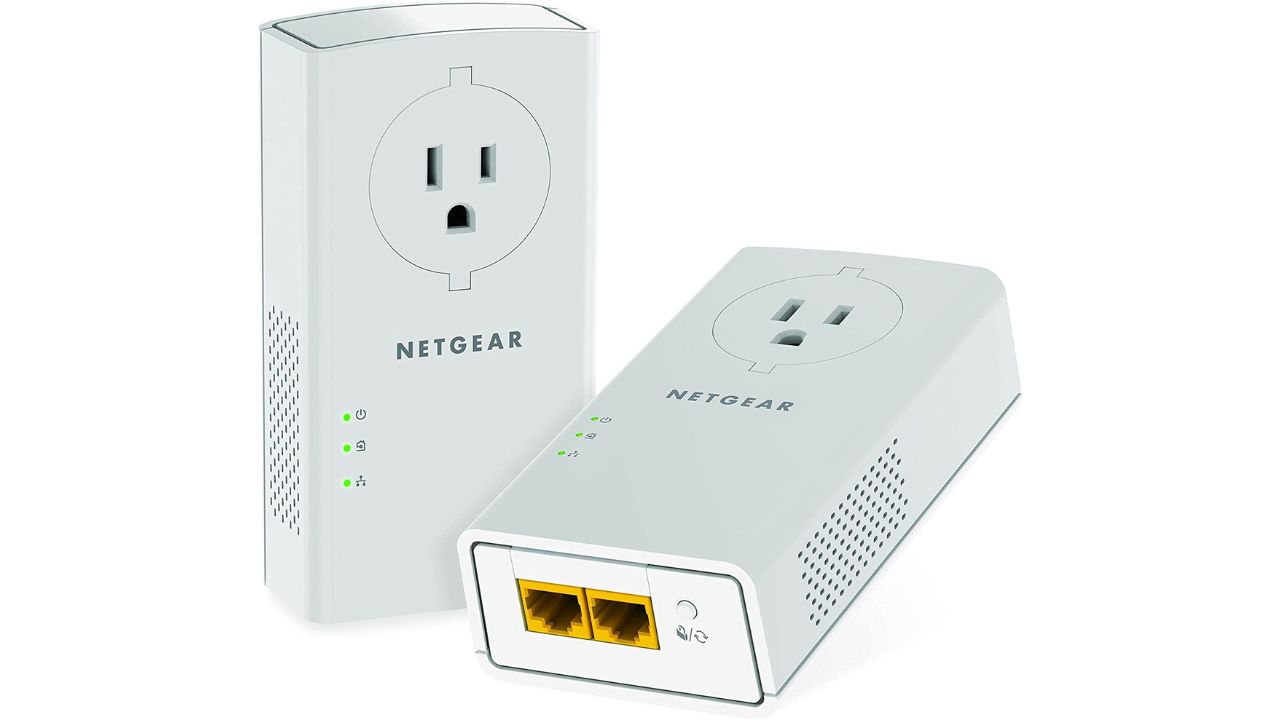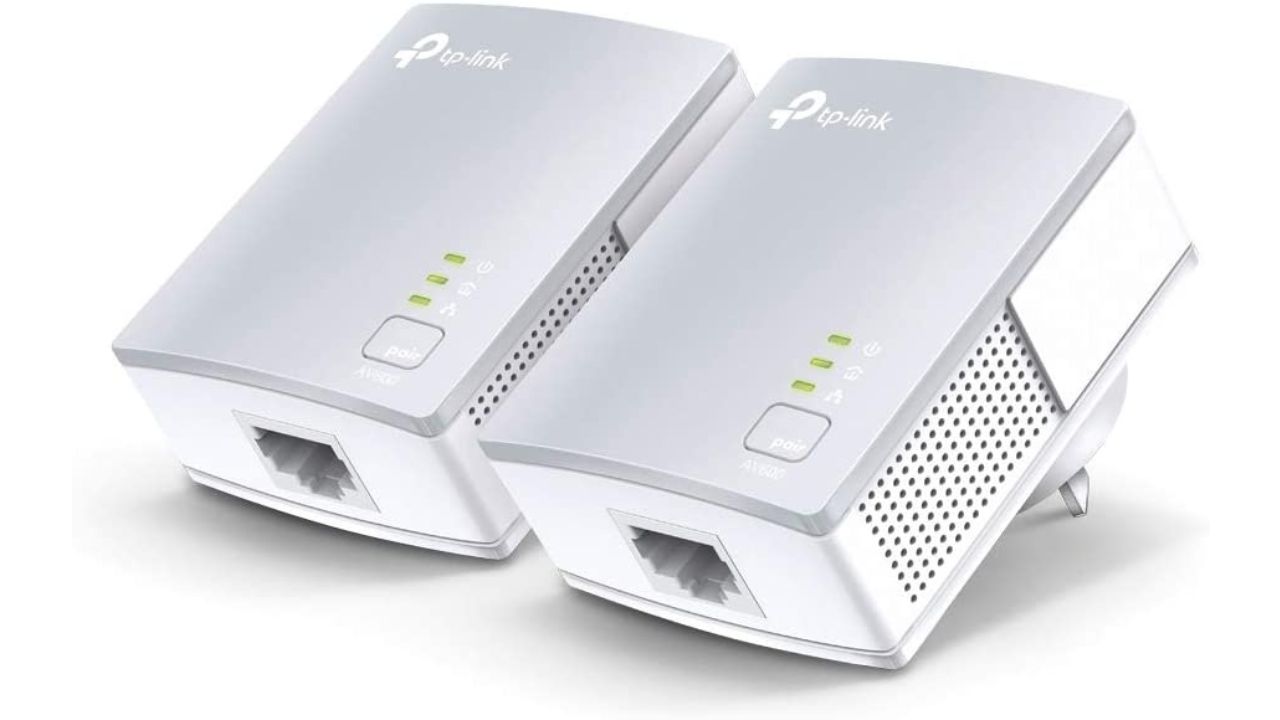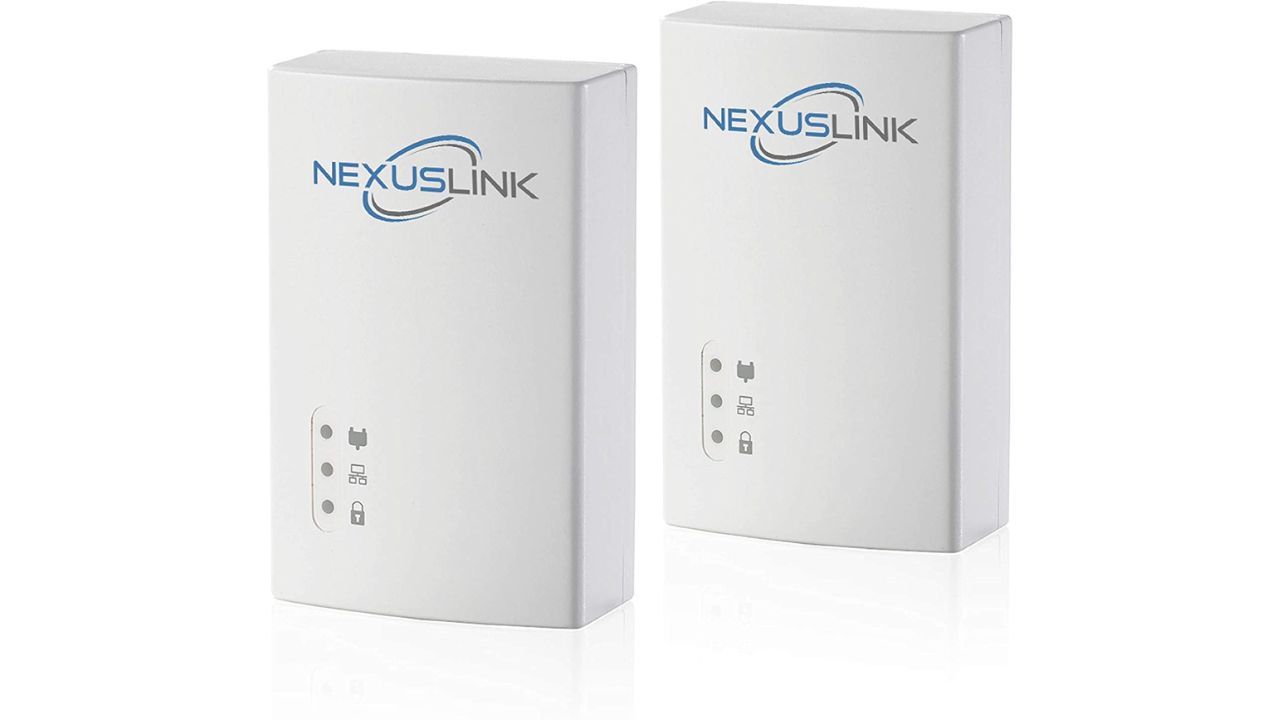Have you ever wanted to watch your desktop screen on your smart TV yet found out that the network connection is too weak or unreliable? If so, you are not alone.
Many people face this problem when they try to stream their favorite videos, games, or presentations from their computers to their TVs.
Fortunately, there is a solution that can help you overcome this challenge by using a power adapter.
Helen from Clyde, MI, is writing in asking for advice on how to use a powerline adapter to connect her desktop to her Sony smart TV.
I need an extender to connect my desktop to the Sony smart TV. The network monitor (Xfinity) is located on the lower level at the opposite end of the house and the TV is located at the upper level at the opposite end of the house.
A powerline adapter is needed to extend the network so the desktop can be viewed on the TV.
Please advise me regarding internet network wall plugs. Thank you,
Helen, Clyde, MI
Helen, we’re here to help. We will explain how to set up and use a powerline adapter. We will also provide some tips and recommendations on how to get the best performance and experience from your powerline adapter. We’ll also provide you with some information on using a WiFi extender to improve your Internet access in different areas of your home.
What is a power line adapter?
A powerline adapter is a device that uses your existing electrical wiring to extend your network signal to any room in your house. It works by plugging one adapter into an outlet near your router and another one into an outlet near your TV.
Then, you can connect your devices using ethernet cables or WiFi. This way, you can enjoy a fast and stable network connection without having to drill holes or run long wires.
Another version of the powerline adapter is one that transmits the signal via WiFi. Unlike a wired powerline adapter, a wireless one does not need an ethernet cable to connect to your TV. However, you still need to plug it into an outlet near your TV and pair it with another unit near your network monitor.
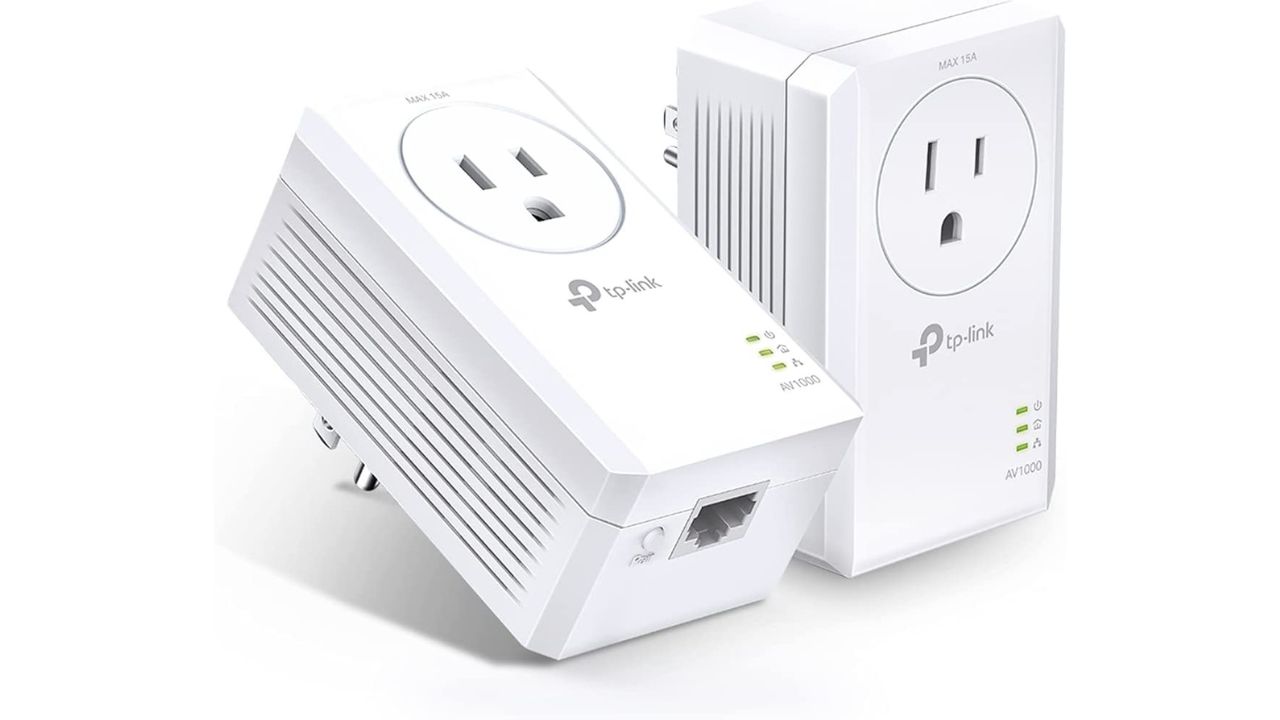
Credit: TP-Link
Using a D-Link Powerline Adapter
Helen mentioned that she already has information on a D-Link Powerline Adapter (DHP-601AV). This is a good choice, as it has a high-speed data transfer rate of up to 1000 Mbps and supports multiple streams of HD video. It also has a simple plug-and-play installation, so you don’t need any complicated wiring or configuration.
To use the D-Link Powerline Adapter, you need to plug one unit into an outlet near your network monitor and connect it to an Ethernet cable. Then, plug another unit into an outlet near your TV and connect it with another Ethernet cable.
The two units will automatically pair and create a secure connection. You can then use your TV’s remote control to access the desktop screen.
See all my picks for best powerline adapters below.
Things to consider before you buy the D-Link Powerline Adapter
However, before you buy the D-Link Powerline Adapter, there are some things you need to consider.
First, the performance of the powerline adapter depends on the quality and condition of your electrical wiring. If your wiring is old or damaged, you might experience interference or reduced speed.
Second, the powerline adapter might not work well if you plug it into a surge protector, extension cord, or power strip. These devices can filter out the network signal or cause noise.
Third, the powerline adapter might interfere with other devices that use the same electrical wiring, such as baby monitors, cordless phones, or microwave ovens. You might need to adjust the frequency or channel of these devices to avoid interference.
MORE: HOW TO SPEED UP YOUR WIFI, INTERNET CONNECTIONS
What is a WiFi extender?
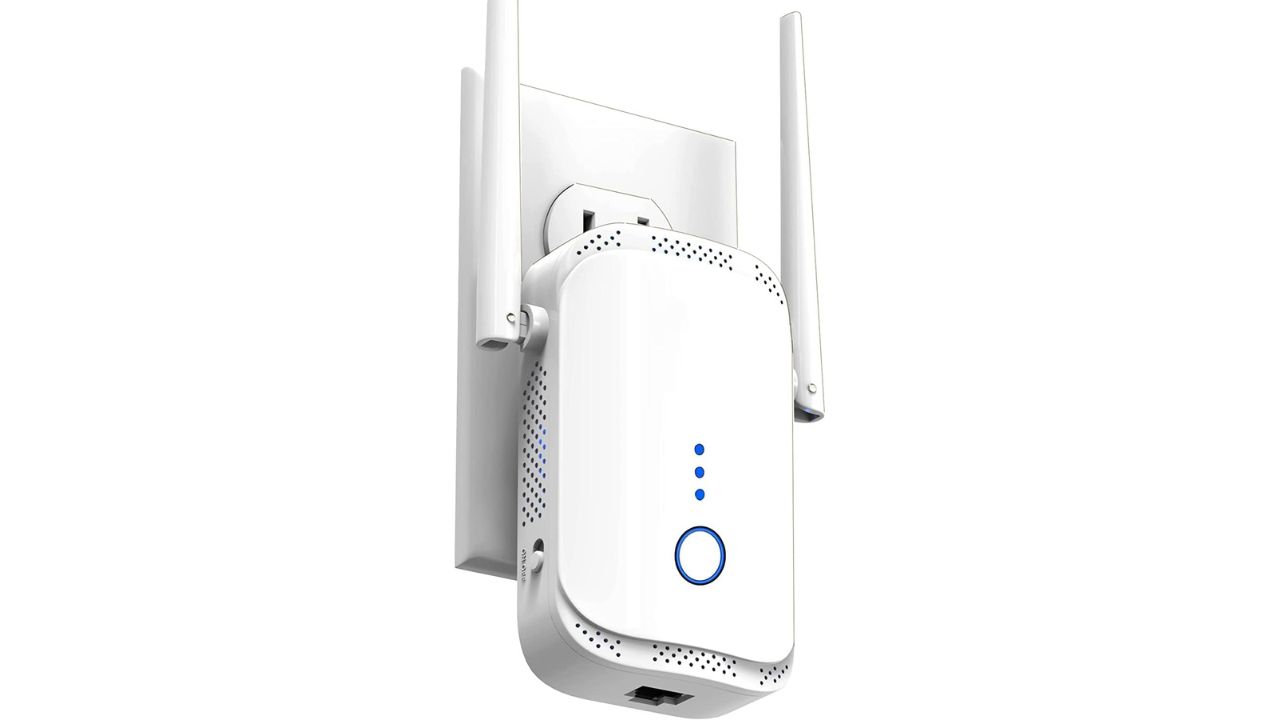
Credit: Cryo360
Helen could also consider using a WiFi extender to improve her WiFi signal at home. A WiFi extender is a device that amplifies and retransmits the internet signal from the router to areas where it is weak or nonexistent. A WiFi extender should be placed halfway between the router and the dead zone for optimal performance.
There are two types of WiFi extenders. A plug-in extender that fits into a wall socket and a desktop extender that has ethernet ports. Some WiFi extenders use the same wireless network as the router, while others create a separate network that requires switching devices. A WiFi extender should support the same or higher WiFi standard as the router.
See my top picks for best WiFi extenders
The main difference between the powerline adapter and a WiFi extender
The main difference between the powerline adapter and a WiFi extender is that a powerline adapter uses a wired connection, while a WiFi extender uses a wireless connection and does not need any electrical wiring or an Ethernet cable. Both devices can help you improve your internet access in different areas of your home, but they have different advantages and disadvantages.
Powerline adapter vs. WiFi extender pros and cons
Powerline Adapter
Pros
- A powerline adapter can provide a more stable and faster connection than a WiFi extender.
Cons
- It depends on the quality of your electrical wiring and the distance between the plugs. A powerline adapter might not work well if your home has old or faulty wiring or if there are too many devices plugged into the same circuit.
WiFi Extender
Pros
- A WiFi extender can be easier to set up and use than a powerline adapter.
Cons
- It might not deliver the same speed or reliability as a wired connection.
- A WiFi extender might also create interference with other wireless devices or networks or suffer from interference itself.
- A WiFi extender might also reduce the bandwidth of your original WiFi network since it uses some of it to communicate with the router.
MORE: HOW TO SPEED UP YOUR WIFI, INTERNET CONNECTIONS
Option to upgrade to a mesh network
Alternatively, Helen could upgrade to a mesh network. This may set you back a little more money, but it could be the easiest and best solution to getting a good internet signal in every area of your home. This is how I was able to get a strong signal in the nooks and crannies of our 1927 brick house, both inside and outside, where we need good WiFi to support our wireless security cameras.
This third mesh option will definitely boost her WiFi signal in her home. For those who don’t know, a mesh network is a group of connectivity devices, such as WiFi routers, that act as a single network, so there are multiple sources of connectivity around your house instead of just a single router.
A mesh network can provide better coverage, performance, and reliability than a single router or a WiFi extender. However, a mesh network can also be more expensive and complex to set up than other options. You will need to buy compatible mesh devices and place them strategically around your home to ensure optimal signal strength and avoid interference.
You will also need to configure the mesh network using an app or software that may vary depending on the manufacturer. A mesh network is ideal for large homes with multiple floors and rooms or homes with thick walls or other obstacles that block WiFi signals.
See my top mesh networking winners by clicking here.
When one WiFi router isn’t enough – Top mesh networking winners
Best powerline adapters
NETGEAR Powerline Adapter Kit
The NETGEAR Powerline Adapter has Homeplug AV2 technology that supports gigabit speeds through your electrical outlets for improved coverage. It works perfectly for connecting smart TVs, streaming players, and game consoles with 4K HD streaming and lag-free gaming. It can be set up in minutes with no need to install any extra software, and there is a noise-filtered power outlet built into the adapter to ensure great performance. At the time of publishing, this product had over 7,900 global reviews on Amazon, with 63% giving it 5 stars.
TP-Link Powerline Ethernet Adapter Kit
The TP-Link Powerline Ethernet Adapter Kit is super affordable, being sold for just $37 at the time of publishing. Its data transfer rate is 600 megabits per second, and all customers get a two-year warranty against factory defects. It is lightweight, easy to install, and the company has been said to have excellent customer service should you have any issues. At the time of publishing, this product had over 13,000 global reviews on Amazon, with 65% giving it 5 stars.
Get TP-Link Powerline Ethernet Kit
NexusLink Powerline Ethernet Adapter
The NexusLink Powerline Ethernet Adapter allows you to enhance your network performance for streaming and gaming and reduce any lag and dropped frames. It’s specifically designed for high-density places like apartments, office buildings, condos, and hotels, and it delivers better real-world performance with its unique G.hn algorithms that improve upon older powerline standards. You can get a strong internet connection without the hassle of having to install an ethernet cable. At the time of publishing, this product had over 500 global reviews on Amazon, with 62% giving it 5 stars.
Get Nexus Link Powerline Ethernet Adapter
MORE: HOW TO SHARE YOUR WIFI PASSWORD WITH GUESTS
Kurt’s key takeaways
What you use to boost your WiFi signal in your home is ultimately going to depend on how your home is set up and what will work best for it based on that setup.
If your electrical wiring allows it, I would certainly say that a powerline adapter will give you better WiFi coverage with much less of a hassle than a WiFi extender might.
A third option could be a mesh network. Although, keep in mind that this is the most expensive option but a preferred way to get a solid signal everywhere at home.
Where is the toughest spot in your home to get a good WiFi signal? What did you do to solve the soft spot of coverage? Let us know by commenting below.
FOR MORE OF MY TECH TIPS & SECURITY ALERTS, SUBSCRIBE TO MY FREE CYBERGUY REPORT NEWSLETTER HERE.
Answers to the most asked CyberGuy questions:
- What is the best way to protect your Mac, Windows, iPhone, and Android devices from getting hacked?
- What is the best way to stay private, secure, and anonymous while browsing the web?
- How can I get rid of robocalls with apps and data removal services?



